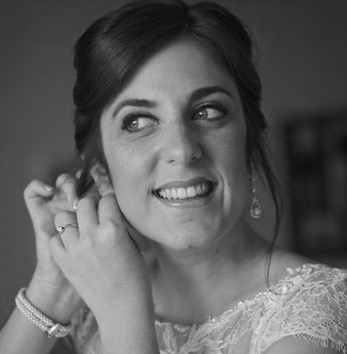This is the 7th year of the “Israeli Soldiers Tour” (Formerly “Israel Soldiers’ Stories”.) This project is one of the most significant counter-attacks of the notorious “Israeli Apartheid Week,” where false information about Israel is being spread by haters across North America college campuses.
In this tour, organized by the pro-Israeli nonprofit organization, StandWithUs, 14 reserve duty Israeli soldier-students travel the United States and speak on campuses, Christian and Jewish high schools, synagogues, churches, etc. They recount their personal experiences of serving in the Israeli Defense Forces (IDF) upholding its strict moral code while fighting an enemy that hides behind its civilians.
They also present their backgrounds, life in Israel and answer questions. StandWithUs “Israeli Soldiers Tour,” puts a human face to the IDF uniform, thus trying to combat the demonization of Israel and Israelis led by anti-Israeli movements, such as the BDS (Boycott, Divestment, Sanctions.) Their in-front-of-the-lines-and-behind-the-headlines stories, which have never been heard before, try to depict the more accurate, more balanced, reality in Israel.
This year, 7 teams of two different former IDF soldiers toured North America, in 28 states and 76 cities. They spoke in campuses, high schools and teen clubs, in synagogues, churches and community centers.
Shir and Daya (Last names are withheld for security purposes) have recently returned back home from their tour, and agreed to share their experiences, the good and the bad, with us.
Why do you think it's important to tell your stories as IDF soldier on campus?
Daya: Right now it's important for people like me – ex-soldiers and pro-Israel speakers – to be on campuses. It's not necessarily for the obvious answer of fighting BDS, but it's to engage with pro-Israel students.
My talks were primarily with students already supportive of Israel and at first, I thought I should be addressing people who were not so convinced. But, I soon realized that theses audiences and especially students needed what we had to offer – our stories and our experiences help them in the fight against anti-Israel rhetoric. I ran into students who got into arguments about Israel and did not know who to handle the tough questions. I was able to help them.
Shir: Sadly, more often than not, the media portrays the IDF in a misguided way. The IDF is one of the most moral armies in the world, and we deserve that the majority of the population will know that fact. By telling our stories we are putting a face to the uniform, thus helping students and communities abroad see beyond the media coverage.
Who are you aiming for? Who is the target audience you want to reach?
Shir: We like to divide any audience to 10-80-10, which means: 10% pro-Israel, 10% anti-Israel and 80% who don't know much about Israel or the conflict in general. Every time before I start an event, I try to identify the people I am speaking to. It's different every time, and I adjust my approach and the way I lead the conversation accordingly.
All 3 groups are my target audience because it's important they all hear the truth: With the anti-Israeli group, I hope to create a dialogue; I am excited to be the first Israeli most people meet; and it's important to motivate the ones who are pro-Israel so that they'll be motivated to continue the amazing hard work they are already doing.
Daya: I think it's most relevant to talk with people who already endorse Israel, but it's also important to address people who don't have a formed, specific opinion. You can't convince the ones who think we are monsters, so our main target is people who still need to be educated.
What is Israel to you, and how do you pass this message to students abroad?
Daya: First, Israel is the country I was born in and this means a lot to me. It's not just the country I live in, but I also chose to serve it for five years because I believe in it. I don't see that Israel's existence is a “given.”
We have many enemies and they are in close proximity, so we have to do everything we can to ensure that its existence will continue. By this, I don't mean just the physical country, but the media war and BDS which impacts Israel economically, academically and culturally. We have to do everything we can to protect Israel.
Shir: Israel to me is home. It's where my family is. It's my past, present and future. It's the only place in the world where I truly feel safe, and the country my grandparents built with their own hands after making Aliyah from Iran. It's the reason I leave everything and everyone behind every year and go to the US, because, as I see it, the real war occurs outside of Israel – the war for our right to exist.
We see a new wave of anti-Semitism and it's our job to help the Jewish people around the world and in Israel feel safe again. I keep my message simple and truthful -I tell my story. I connect with the students in the most basic way: we are all human beings who want to live in peace and quiet.
Share one of the most memorable moments from your recent tour.
Daya: My cousin Sean Mondshine was in the Golani unit and

Did you enjoy this article?
You'll love our roundtable.
Editor's Picks



What Ever Happened to the LA Times?

Who Are the Jews On Joe Biden’s Cabinet?


No Labels: The Group Fighting for the Political Center
Latest Articles

Ha Lachma Anya

Passover 2024: The Four Difficulties

Israel Strikes Deep Inside Iran

NSFW – A Poem for Parsha Metzora

Israel War Room Launches in Spanish












 More news and opinions than at a Shabbat dinner, right in your inbox.
More news and opinions than at a Shabbat dinner, right in your inbox.